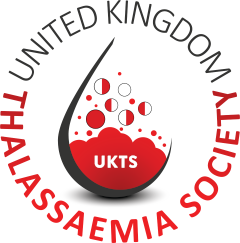Living with thalassaemia

Information
Receiving a diagnosis of a rare condition is a major life changing event for families. Often, the first-time people encounter the term “thalassaemia” is during pregnancy or after the birth of their precious baby. Usually when families receive a diagnosis of their baby inheriting a severe form of thalassaemia it can shattered the world, they once thought they knew.
Thalassaemia can be a difficult condition to live with. Whilst there is access to great treatment options and monitoring in the UK, the condition can still have an impact on everyday life. However, we can boast that our members have worked and continue to work tirelessly to achieved some of their dreams despite the many obstacles in their way. We also have one of the oldest cohort of people living with thalassaemia in the world! Our members resilience is unmatched.
We know that there will always be some limitations in life, but we hope this page will educate, empower and inspire you to learn more about the condition and take control of your thalassaemia management.
Each section is written to cover important information that will help you make informed choices about your treatment options.
The sections are still a work in progress so please keep checking our website for more updates and if you have any suggestions on topics that should be covered, please email Roanna at roanna@ukts.org.
Tips on staying well
- If you need regular blood transfusions schedule these so that your Hb is kept above 95 g/l
- Take your chelation therapy as prescribed (it will not work to give you alive if it stays in the box!)
- Make sure infections and any complications are treated quickly
- Maintain a good balance of nutrition and activity
- Ensure your vaccinations are up to date
- Avoid smoking and consuming a lot of alcohol
- Look after your mental health- it is just as important as your haemoglobin and iron levels- speak to someone if you are finding things difficult! Do not suffer in silence!
- If your spleen has been removed- Take penicillin twice a day for life.
- Attend your clinic appointments on time so that your team can monitor your overall health and complications of thalassaemia. This will also give you the chance to discuss any of your concerns and hear about trails in thalassaemia that may be right for you! PS: This is a one of the requirements we stipulated in our national standards produced in conjunction with the Department of Health in order to keep you healthy as possible! These appointments are usually every 3 to 12 months if you are well but may need to be more frequent in you develop health problems. You can find a copy of our national standards on the publication sections of this website!
